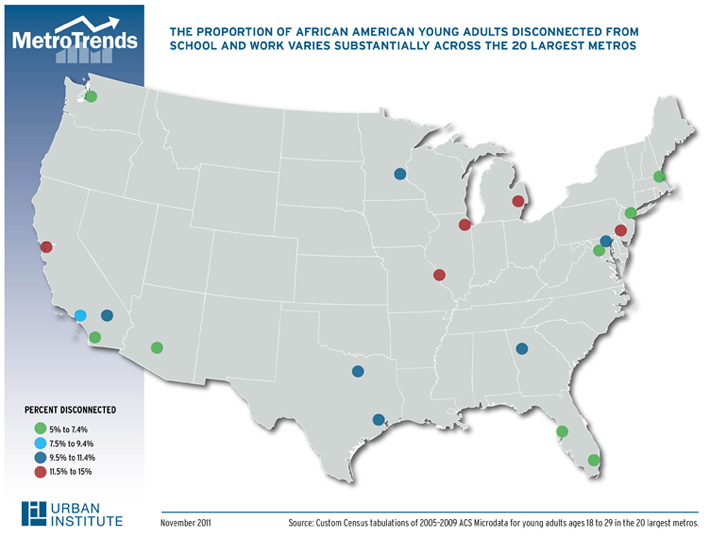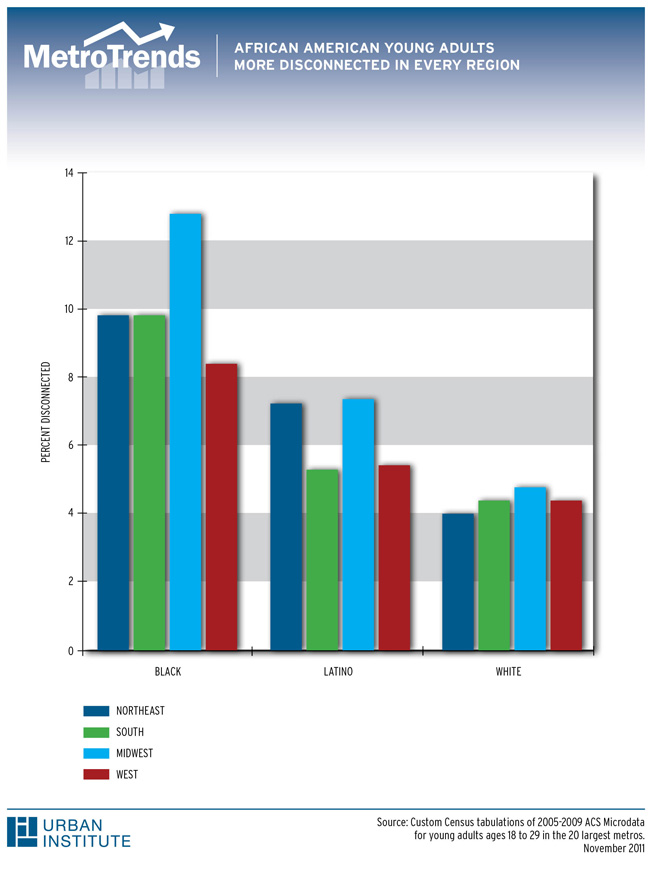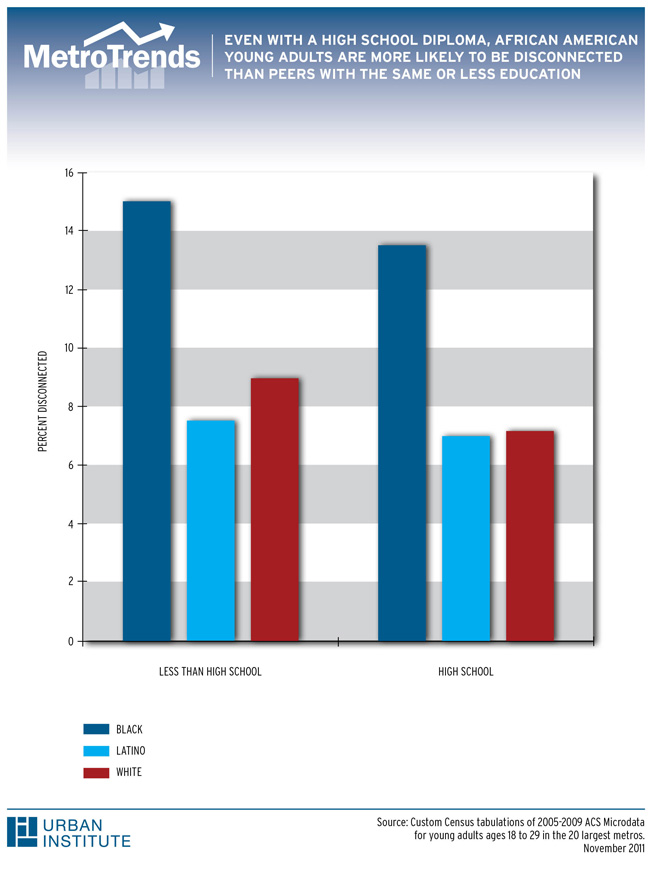
|
|
Disconnected Youth Disconnected and Losing Ground: Race, Region, Education, and the RecessionYouth who are in school or working as they enter adulthood remain better connected to employment throughout their lives. But getting and staying connected may be hard during a recession and even harder, surprisingly, after it ends. We are already seeing troubling numbers of disconnected young adults in the top 20 Metros reflecting the period right before and during the Great Recession, which spanned December 2007 to June 2009; these numbers are likely to grow in the coming years if past recessions are any guide. The most apparent and unsettling news is that African Americans between the ages of 18-29 are far more likely to be disconnected - no matter how we examine the numbers. In each of the top 20 metros, the proportion of disconnected African Americans exceeds the proportion of disconnected whites and Latinos. Figure 1 shows the share of young African Americans who are disconnected in the 20 largest metros. It ranges from 6 percent (in Phoenix) to 15 percent (in Detroit). In comparison, for Latinos it ranges from 4 percent (in Seattle) to 10 percent (in Detroit), and for whites, 3 percent (in Washington, DC and San Diego) to 6 percent (in Detroit). (See our recent spotlight for more on Detroit.) Racial and ethnic differences remain stark when we group by region. Even African Americans' lowest rate, 8 percent in the West, is higher than whites' and Latinos' highest rates in the Midwest, 5 and 7 percent respectively. Interestingly, the share of disconnected whites remains relatively consistent across regions, although is somewhat higher in the Midwest as it also is for African Americans and Latinos. Regions have very different industries, workforces, and workforce needs, and the education and job skills necessary to meet demand may vary significantly by race and ethnicity. African American and Latino youth complete high school and attend college at much lower rates than whites, and the disparity in connection to school and work at early ages may reflect this. Presumably, young adults with higher education will be better connected to school or work. But what if we look just among African American, Latino and white young adults with a high school degree or less? Do we still see the large disparities by race? We do. Once again we look across the top 20 metros (although the pattern is pretty similar in each region) to see whether education might explain the racial differences. It doesn't. Among young adults with a high school degree or less (and no college), African Americans stand out as far more likely to be disconnected. The proportion of disconnected African Americans with a high school degree even exceeds the proportion of disconnected whites and Latinos with less than a high school degree. It is unclear from these statistics what accounts for the dramatic differences by race. Segregation, discrimination, and unequal access to resources (economic, educational, and social) undoubtedly contribute and have been cited in numerous studies. The source of the disparity may also originate within smaller geographical areas - e.g., neighborhoods, central cities, or isolated suburbs where more African American young adults live and encounter different environments than their peers (e.g., higher poverty, lower-quality schools, and fewer jobs and job networks). And even as a recent MetroTrends analysis shows, African Americans tend to live in communities that are more economically vulnerable with less job growth than Latinos and immigrants The appropriate policy responses are as varied as the many probable explanations for the disparities. However, these findings suggest that targeted efforts to increase African Americans' connections to school and work are in order. This probably means a combination of increased job skills training, better mentoring and access to job networks, and employer education around hiring practices, discrimination, and its consequences. And the time to implement is now. If the current economic trends continue, we're in for a growing number of disconnected adults in the foreseeable future. We cannot afford to lose this most valuable resource at such a critical time in their adult development and at such an important time in our history. As baby-boomers retire and social security dwindles, our productivity and workforce are dependent on having all hands on deck - and that includes African Americans whose potential and skill have been grossly under nurtured and underestimated. |
Experts Feedback
Send us your comments to help further the discussion. Share
Commentaries
|








